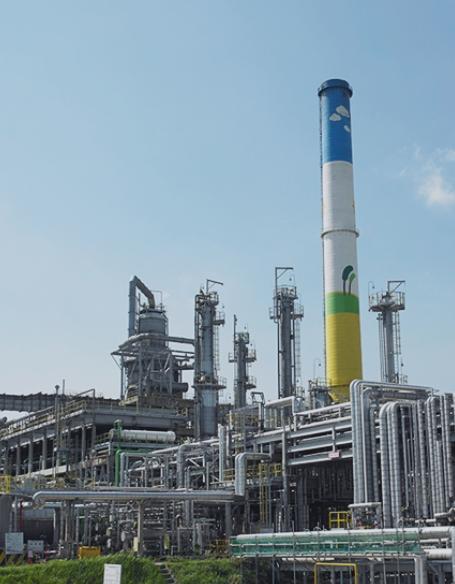How Black Oil Recycling Reduces Waste and Pollution

Used motor oil, also known as black oil, is a common byproduct of our car-dependent world. But what happens to all that oil after an oil change? Unfortunately, improper disposal of used oil is a major environmental threat. The good news is, there's a much better option: black oil recycling!
The Problem with Used Oil
Used oil isn't just dirty oil; it's packed with contaminants like metals and harmful chemicals. Improper disposal can lead to serious environmental consequences:
Soil and Water Contamination: Dumping or pouring used oil on the ground allows it to seep into the soil and eventually contaminate groundwater. This can poison wildlife and render the water unsafe for drinking or irrigation.
Ocean Pollution: Used oil that ends up in storm drains eventually reaches rivers and oceans. Here, it can form a film on the water's surface, harming marine life by interfering with respiration and hindering sunlight penetration, which disrupts entire ecosystems.
Black Oil Recycling to the Rescue!
Black oil recycling offers a sustainable solution by giving used oil a second life. Here's how it benefits the environment:
Reduces Waste: Recycling keeps millions of liters of used oil out of landfills, freeing up space for other waste and conserving resources.
Prevents Pollution: By properly collecting and recycling used oil, we significantly reduce the risk of soil and water contamination.
Conserves Resources: Repurposing used oil reduces our dependence on virgin crude oil, a non-renewable resource. The recycling process can transform used oil into:
Re-refined Base Oil: This high-quality oil can be used to manufacture new lubricants.
Fuel Oil: Used oil can be processed into fuel for industrial applications, reducing reliance on fossil fuels.
Raw Materials: The recycling process can also recover valuable components for use in various industrial processes.
The Magic Happens at Oil Recycling Plants
These specialized facilities are the workhorses of black oil recycling. Here's a glimpse into what goes on inside:
Collection and Sorting: Used oil is collected from various sources like auto repair shops, quick-lube centers, and individual households. Once at the plant, the oil undergoes a sorting process to remove any contaminants like coolant or water.
Multi-Stage Processing: The core of the operation involves a multi-stage treatment process. Depending on the facility and desired end product, this might include techniques like filtration, distillation, and chemical treatment to remove impurities and refine the used oil.
Transformation and Reuse: The rejuvenated oil is then transformed into various products like re-refined base oil, fuel oil, or even asphalt for paving. These recycled products meet stringent quality standards and can be confidently used in various applications.
What You Can Do
Black oil recycling isn't just an industrial responsibility, you can be part of the solution too! Here's how:
Never Dump Used Oil: Take your used oil to a designated collection center or ask your mechanic to recycle it for you. Many auto parts stores and repair shops offer used oil recycling programs.
Spread Awareness: Talk to friends and family about the importance of proper used oil disposal and the benefits of black oil recycling.
By choosing to recycle used oil, we can protect our environment, conserve resources, and contribute to a more sustainable future. Remember, every drop of used oil recycled makes a difference!
- Art
- Causes
- Crafts
- Dance
- Drinks
- Film
- Fitness
- Food
- Games
- Gardening
- Health
- Home
- Literature
- Music
- Networking
- Other
- Party
- Religion
- Shopping
- Sports
- Theater
- Wellness


